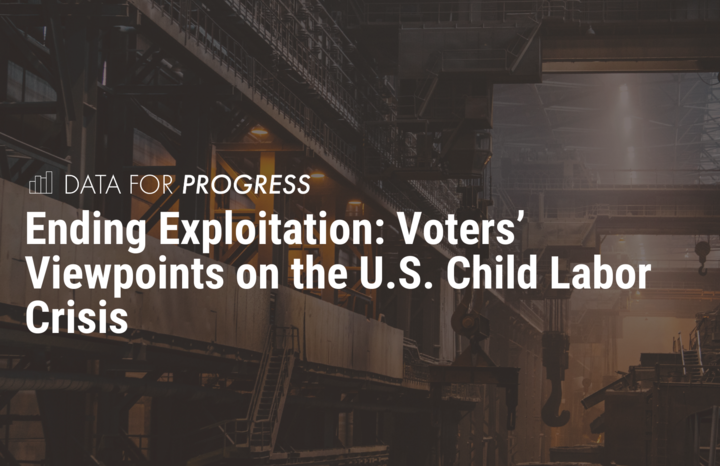Ending Exploitation: Voters’ Viewpoints on the U.S. Child Labor Crisis
By Cecilia Bisogno, Anika Dandekar, and Grace Adcox
Over the July 4th weekend, the United States regressed further into a new, bleak era of child labor law. In the U.S. we often consider the issue of child labor exploitation long-settled, with a century of legislation crafted to protect child workers and families. Yet new laws taking effect across states like Iowa, Arkansas, and Ohio reverse nearly a century of progress on child labor protections, with minors working more hours in more dangerous jobs, while limiting the liability that businesses face for their exploitation of underage workers. These state laws put children at risk and undermine federal protections and enforcement of child labor law. Today we’re seeing a massive deterioration in children’s rights, and a return to the economy of exploitation that had been relegated as a shameful mark in our past.
Earlier this year, the New York Times exposed companies such as General Mills, Fruit of the Loom, Frito-Lay, Ford, General Motors, J.Crew, and McDonald’s for their negligent violations of child labor laws. Since 2018, the U.S. Department of Labor (DOL) has seen a 69 percent increase in children being employed illegally, with a 141 percent increase in the number of minors employed in violation of the Fair Labor Standards Act (FLSA) between 2017 and 2022.
Investigations have uncovered dozens of cases where employers illegally hired children to work hazardous jobs, with minors using caustic chemicals to clean dangerous equipment, dying from injuries on construction sites, losing fingers operating machinery, fainting in fields from heat and chemical exposure, and children as young as 10 years old working in restaurants until 2 a.m. Examples have popped up in household brands across industries throughout the United States, exposing the cruel reality of labor practices here at home, and shining a light on the wide gaps in legislation protections and enforcement.
In light of these harrowing increases in illegal child labor, Data for Progress conducted a survey of likely national voters from June 1-5, 2023, finding bipartisan support for expanding child labor laws and ensuring corporate accountability regardless of children’s migration status. We also find wide opposition to most state-level rollbacks of child labor laws.
Despite the high-profile NYT investigation, voters lack awareness of this concerning trend. We find that 61 percent of voters overall, and majorities of voters across parties, are not aware of the increase in child labor violations.

